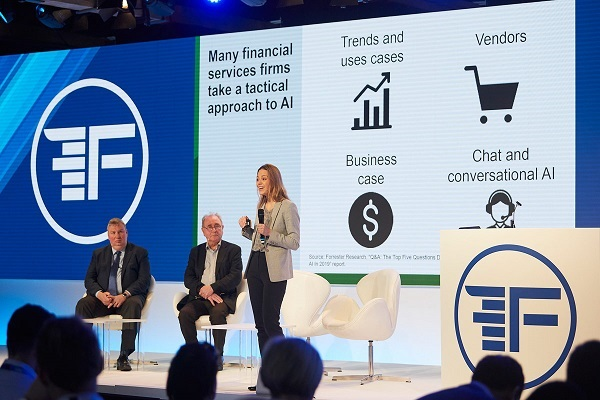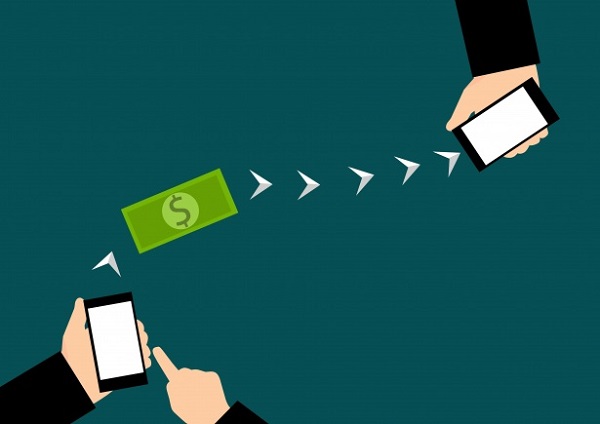Blockchain has had an immense effect on our world so far, and it has more to grow. However, most people don’t consider the most obvious entity that will once be affected by blockchain – banks.
As companies are developing blockchain solutions, banks could lose a lot, and that’s precisely what they are afraid of.
The blockchain is a safe and secure way of transferring digital assets without the need for banks. This technology is also automating a large portion of what made the banking industry so annoying – the tedious processes like processing claims or distributing the contents of a will.
If you consider the banking industry now it seems steady – they handle payments, loans, credit and so on. However, the blockchain could change all of that.
Payments
Nowadays, the money around the globe is transferred with slow payments and more fees on top of that. If you want to send money, you have to pay a flat rate for the transfer and pay additional fees which could add up to 7%.
The bank gets some of your money and then there are hidden fees for the exchange. On top of that, there is a long wait for the money to arrive.
Handling your payments is extremely profitable for banks and they have no intention to lower any fees. Anything from cross-border payments to letters of credit generates a large portion of revenue for them.
Then there is blockchain. Disrupting the system by offering more security for less money for P2P payments, it’s threatening for banks. Bitcoin and Ethereum are created around a decentralized ledger which means that anyone can send money easily, without the need to involve third parties as verification.
It’s fast, cheap and borderless.
For instance, Bitcoin payments take 16 hours in the worst case scenario, and up to 30 minutes at best. It’s still not immediate but still a huge advancement from 3 days it would take with banks.
Transactions can still be quite expensive but developers are looking for ways to lower them, especially for Bitcoin or Ethereum. Bitcoin Cash already has low-price transactions, at about 20% per transaction.
TenX, for instance, attached their wallets to debit cards so that you can use it as you would use any other card for payments.
Of course, cryptocurrencies are far from replacing regular money for payments but you can’t deny their growth in use and transaction volumes.
Clearance and settlement
An average bank payment takes at least three days to settle. It’s annoying for the customers but it’s also a nightmare for the banks to move money around. A simple transfer has to go through a large and complex system of intermediate services like correspondent banks, custodial services and so on before it can reach the final destination.
If two banks don’t have an established relationship, they have to search the SWIFT network to find a correspondent bank which can connect the two banks and settle this transaction, but for a fee.
The blockchain is a decentralized ledger, however, and rather than using SWIFT, an interbank blockchain could keep track of all transactions. This means that transactions would be sent directly on the blockchain. Then there is no need for a high volume of correspondent banks or their high fees.
SWIFT messages work a lot like emails, one-way messages and for the payment to be settled, both banks have to confirm the payment. You can imagine how slow all of this is.
Still, services looking to eliminate the need for SWIFT are also working with banks to decentralize systems and bring greater efficiency.
Fundraising
Raising money can be a difficult process. Businesses have to have countless meetings and negotiations in the hopes of getting something from that. However, the blockchain is different in that you don’t need a platform to raise money or venture capitalists, negotiations and many other common things.
You can raise money from anyone at any time. Anyone can invest.
The blockchain works for fundraising because there is an initial coin offering at the beginning and projects sell tokens in exchange for bitcoin or ethereum. The value of this token is tied to the success of the project in the future.
ICOs work globally, online, with unique access to a large audience of investors. No one is limited to rich individuals or institutions for investments.
ICOs also give you immediate access. When you buy a token, it’s priced on the market. As you would guess, this is a major speedup for startups and entrepreneurs.
Security
To sell assets, you need to know who owns what. The market today allows you to do that through brokers, exchanges, depositories, custodian banks and so on. These parties work through an outdated system of paper ownership.
If you want to buy a share of a company’s stock, you can place an order through the stock exchange which connects you with a seller. Back in the old days, this would mean paying cash for the paper certificate of the share. You’d think that the e-version of this would be simpler, but it’s only making things more complicated.
You don’t want to keep track of everything so you outsource this to a custodian bank and because the buyer’s and seller’s bank rarely ever match, these custodian banks need to find a third party to hold these certificates.
Blockchain promises to change this by creating a database of digital assets. This would be decentralized and with a distributed ledger.
Loans and credit
When you apply for a bank loan, they have to assess how much of a risk it is that you won’t pay them back. They look at your credit score, income, home ownership status and so on. The credit report is provided by one of the three agencies available and they price the risk based on the proof that these agencies provide. This is where the amount of loan, fees, and interests are decided.
This system is difficult for bank clients to overcome. There might be some mistakes in their credit scores damaging their chances. There are also only three agencies which mean that hackers know exactly where to go.
Blockchain offers a simpler way out, once more. With a decentralized registry of historical payment, customers could apply for loans based on their global credit score.
Lending in blockchain is still quite young and needs work but it’s a promising project which will definitely improve the current state.























